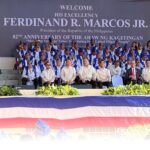The Philippines is an archipelago made up of several islands. The center of administration and power is in Manila, thus, it is difficult to access and address the needs of remote and rural communities. Access in essential services, infrastructure and opportunities are examples of barriers they are facing, which leads to inequality and development disparities. In the Philippines, there has been constant debate about federalism.
Federalism offers the Philippines a chance to reform administration in a way that strengthens local communities, promotes economic progress, and strengthens bonds among diverse local communities. Fundamentally, federalism entails distributing greater decision-making authority among the regions as opposed to centralizing it entirely in Manila, the capital. This decentralization of authority allows each region to address its challenges and capitalize on its strengths more effectively.
Federalism is it could boost the economic development across the country. The Philippines is rich in natural resources and has industries that have the potential for growth for each region. These regions can make strategies that match their specific needs and opportunities by having more influence over their economic policies and investments. For instance, regions with tourism industries might invest in infrastructure and marketing to draw more tourists, while agriculturally rich regions should concentrate on enhancing farming methods and exporting goods.
Federalism may open up new opportunities for innovation, wealth, and the creation of jobs by utilizing the distinctive characteristics of every region.
Federalism in the Philippines has the potential to improve social cohesiveness and national unity in addition to economic benefits. Federalism recognizes and values the plurality of the cultures, languages, and customs that make up our nation. Federalism allows each region to maintain and develop its own identity while remaining a part of the greater Filipino community, as opposed to Manila imposing a one-size-fits-all strategy. Regardless of where they reside or what language they speak, this inclusivity and appreciation for variety can help close gaps and promote unity among Filipinos.
Of course, there will be difficulties in making the switch to a federal government. To ensure that power is allocated equitably and effectively, careful planning, robust institutions, and transparent governance will be needed. Concerns regarding possible regional differences and the necessity of addressing historical injustices may also exist. Nevertheless, these challenges may be overcome with careful consideration and a more united, resilient, and equitable Philippines will pave the way.
In conclusion, federalism in the Philippines has great potential to lead to national unity, economic progress, and empowerment. Federalism provides a foundation for creating a better and more inclusive country through decentralizing power, encouraging economic diversity, and honoring cultural history. The Philippines has to embrace federalism as a driver of positive change and set off on a path to a better future for everybody.
Gladys Paez
09501747536.



